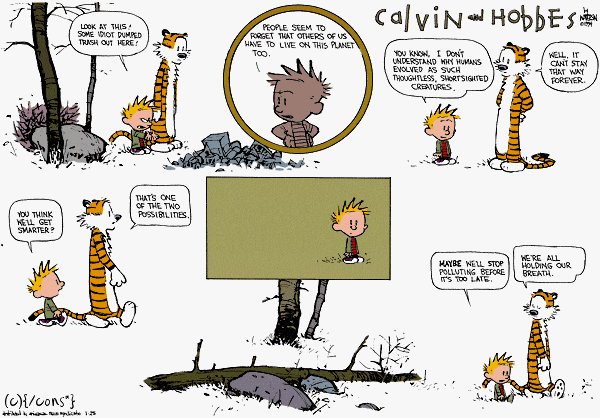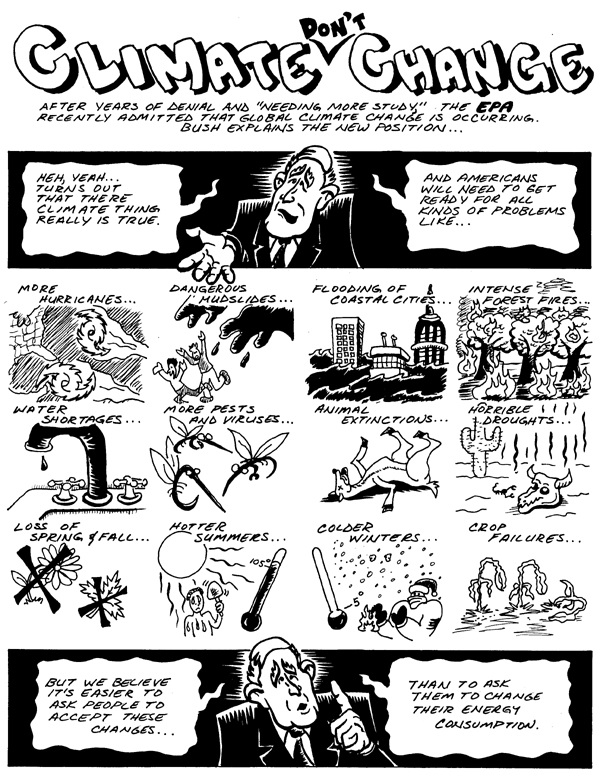Knowing that we're not going to see each other until 6th May, let's have a look at the things studied in class. After doing a conversation practice between a tourist and a local person, the grammar focus has fallen on the passive causative, that it, the structure known as ' have/get sth done'. Consequently, this English video lesson on the topic and a multiple choice exercise will help you to master the grammar point.The exercise from the Student's book web page is also included here. To review the grammar point studied on Monday, uncountable and plural nouns, here you are a useful guide: We've also started Unit 6C and talked about 'creative thinking'. You may find it interesting to have a look at the experiment already mentioned in class. Did you see the gorilla o didn't you?
What about watching some other similar videos on change blindness? Thanks for sharing, David and Antonio José!
Next, we've focused on the writing task for Monday 6th May - writing a report. As I didn't really have all the time expected to explain it in depth, I'll include a guide as an exception. Finally, let's practise the listening skill with a great animated video. Are you able to write the transcript of the video as if it was a dication? Definitely!
Exercise b
Rumspringa is a time when teenage Amish have to decide whether they want to stay in the community or leave.
Exercise c
1. T
2. T
3. F. Ruth has never seen art before - they are not allowed to do art at school.
4. T
5. F. The people who are really learning something are the city kids.
6. F. He ignored him.
7. F. The majority choose to stay.
8. T
9. T
10. F. He / she says it depends on your point of view.
What do you know about the World Book Day? Read about the origins of this day. How important is reading in your everyday life? Have you got any favourite book or writer? Listen to some people talking about their favourite books: | | Watch the last video up to min 2.55 and say whether the following statements are true (T) or false (F): 1. She dislikes Pride and Prejudice. 2. She has just finished reading Persuasion. 3. She prefers the heroine in Persuasion. 4. She has read all of Jane Austen's novels. 5. The Shadow of the Wind is set in 1945 6. It is the story of a boy who buys a book. 7. She likes the style of the book. 8. The book gives a great description of Barcelona. Answer Key (select the area to see them) : 1F, 2F, 3T, 4T, 5T, 6F, 7T, 8T. If I had to choose one single favourite book to recommend, I wouldn't be able to go just for one. There are many I love and really enjoyed reading. Apart from Spanish, English, French, Italian, Greek and Latin classics, I was really hooked on The Pillars of the Earth, Angels and Demons, A Thousand Splendid Suns, The Shadow of the Wind (La sombra del viento), The Thirteenth Tale, Rainwater, The Eight, Cathedral of the Sea (La Catedral del Mar), The Doctor, The Kite Runner, The Time in Between (El tiempo entre costuras), The Rose Labyrinth, Think of a Number, The Library of the Dead, and so on. It's now your turn to share your favourite books with the class.
The topic on the last session was a very relevant one. The Amish community are a group of traditionalist Christian church fellowships. They are known for simple living, plain dress and reluctance to adopt many conveniences of modern technology. The topic brings out the importance of family affection among them and the effect of city life and modernity on this community.
Therefore, let's focus on city life. Below you'll find a vocabulary exercise on this: As for the grammar point, we had a look at uncountable and plural nouns. I've come across some more specific explanations on the topic with an exercise (click "next" at the bottom of the page to find the exercise). Moreover, here you are the link to an exercise on the Student's book webpage. However, you might find it interesting to have a look at the exercises from the book webpage on articles. Next, as we were talking about Edinburgh in class and spending a year off abroad... here you are a short documentary on the student life in the city of Edinburgh: In addition, let's pick up the thread of speeches. As it may be useful for next month, have a look at this doc below:
This week in class we learned a little bit more about speeches. As a result, it may be interesting to have a look at the following tips on how to present project in the classroom. Bear this in mind for the oral exam in june. As for grammar, we still focused our knowledge on the usage of articles in English. We already practised this at some point on the blog some months ago but there's no excuse to keep on practising it. Therefore, have a go and try doing these two exercises: exercise 1, exercise 2. However, the listening exercises provided here today as a revision is about the environment. Sorry for being a pain in the neck but it's crucial to take a step forward on this kind of issue. What do you know about your "Carbon footprint"? If you are not sure yet, watch the video below: Now watch the video below and write down the 10 steps to reduce your Carbon footprint, as if it was a listening exam practice. Step 1. Turn the thermostat up in the summer and down in the winter. Close doors and insulate windows Step 2. Turn off and unplug electronics Step 3. Change to compact fluorescent bulbs Step 4. Do your laundry or run a dishwasher only with a full load Step 5. Eat local and take a canvas tote Step 6. Bring your own cup or mug when you buy coffee Step 7. Cut back on bottled water, making and transporting them pollutes a lot Step 8. Plant a tree, it produces greenhouse gases Step 9. Use your car less Step 10. Car pool, use public transport, walk or bike Answers are written in white. Select the text above to see them. You can also do some reading comprehension tests about the environment.questions (with the answers).
Exercise a
1. c 2. b 3. c
Exercise b
The controversy was about what Neil Armstrong actually said when he landed on the moon. Did he say 'One small step for man...' or 'One small step for a man...'?
The 'a' is important because the sentence makes good sense with it ('One small step for an individual man, but a giant leap for humans in general').
Without the article the sentence does not make sense as it means 'One small step for people in general, one giant leap for people in general'.
Exercise c
20th July 1969 - It was the date of the first moon landing.
6 hours and 40 minutes - The time the astronauts spent in the aircraft between landing on the moon and stepping out of the capsule.
500 million - People who watched or listened to the moon landing live.
Buzz Aldrin - The second man to step on the moon.
First Man - The name of Armstrong's biography.
James Hansen - The author of Armstrong's biography.
Peter Shann Ford - The computer expert who discovered through sound analysis that Armstrong really did say the 'a'.
Exercise d
2. mankind (noun): people in general, humanity.
3. momentous (adj): very important or serious.
4. meaningful (adj): having a clear meaning.
5. memorable (adj): worth remembering.
6. inaudible (adj): can't be heard
| GRAMMAR
a.
1. was being
2. probably never be
3. to be a
4. said that
5. won't come |
b.
1. 'll be lying
2. will ... have started / will have ... started
3. has landed
4. drink / have drunk / have been drinking
5. finish / have finished
| | VOCABULARY
a.
1. kidnapper - the others all steal
2. smuggler - the others are crimes
3. evidence - the others are people
4. scorching - the others refer to cold weather
5. mist - the others are extreme weather |
b.
1. committed 6. blew
2. caught 7. sweated
3. sentenced 8. poured
4. kidnapped 9. melted
5. murdered 10. took
|
c.
1. with
2. up
3. after
4. out
5. in
| | PRONUNCIATION
a.
1. weather (it's /ð/)
2. jury (it's /ʊə/)
3. guilty (it's /g/)
4. slip (it's /i/)
5. sweat (it's /e/) |
b.
1. accuse
2. blackmail
3. community
4. blizzard
5. seriously
|
CAN YOU UNDERSTAND THIS TEXT
1b 2c 3a 4a 5b 6a
Despite the fact of being an environmentally-friendly teacher, I do know that teaching environmental issues can bring out unexpected responses in you, my students. However, we all are more or less aware of the real problem and when the matter seems to confront one's personal lifestyle, political leanings or economic situation, then the topic is perceived in a very differente light. Anyway, as we are green activists, here you are a vocabulary and listening exercise on the topic. Go first for the vocabulary exercise, then do the listening one. I've also come across an interesting article entitled " Dirty Britain". It's a Reading Comprehension with a multiple choice exercise. As for the new grammar point introduced in class on Wednesday, here you are two entertaining games: A SNAKES & LADDERS GAME ON THE ARTICLES & A BASKETBALL ARTICLES GAME. Have fun! Note: Scroll down the side bar, the game is on the same page but below the "jugar" icon. Do not clic on "jugar", it would take you to a different web page. Speeches is the topic we're dealing with in class nowadays. Thus, what about understanding what is implied in some of the most famous speeches in English and what we can learn from them? In addition, you can also listen to many relevant speeches given in History.
 Apart from reviewing future perfect and future continuous, we kept on talking about environmental issues yesterday in class, about ecological footprint to tell the truth. The Ecological Footprint has emerged as the world's premier measure of human demand on nature. It represents the amount of biologically productive land and sea area necessary to supply the resources a human population consumes, and to assimilate associated waste. Then, it is possible to estimate how much of the Earth it would take to support humanity if everybody followed a given lifestyle. Ever wondered how much “nature” your lifestyle requires? You’re about to find out. Click here to calculate your ecological footprint.
As for the listening skill, let's watch an Oscar nominated short film entitled " Let's Pollute" and fill in the gaps. Be careful, image-voice synchronization may not be good enough. Therefore, concentrate on the voice-over comments. 1. Pollution is our __________________. 2. Nowadays polluting is better and _______________ than ever. 3. Even before the Industrial Revolution we were polluters ______________. 4. After hundreds of years man needed __________________ . 5. Machines were __________________ of waste. 6. Some of our past habits were __________________. 7. Our ancestors would envy our ___________________. 8. Remember to always buy __________________.
9. Corporations produce tons of ________________ for you to buy.
10. Ask your congressman to eliminate all _______________ restrictions.
11. Prepackaged and processed food has __________________.
12. The best food for you is the one that has been _________________ with herbicides.
Answer key: 1. heritage, 2.more convenient, 3. at heart, 4. an allay, 5. a wonder, 6. counterproductive, 7. toxines and contaminants, 8. latest trendy gadgets, 9. cheap crap, 10. environmental, 11. minimal nutritional value, 12. sprayed
|





 RSS Feed
RSS Feed
